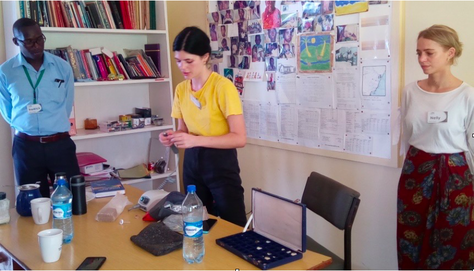Goodbye to stigma! |
|
 Nelly (right) and Francesca (centre) demonstrating how prostheses are made at Kwale Eye Centre
Nelly (right) and Francesca (centre) demonstrating how prostheses are made at Kwale Eye Centre
Firdaus' story |
|
|
Charity Commission number: 1053222
visit us on facebook and twitter!SIgn up for email updates - Click here
|

